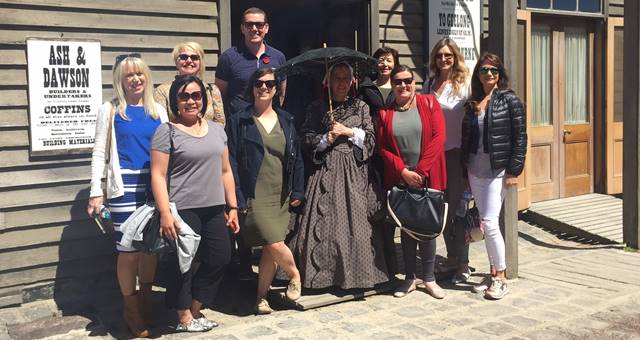
Lynne Schinella shares her tips on powerful business storytelling.
Is it ever OK to tell stories about family members or friends?
I do, often to get a laugh, but both you and your family need to be comfortable about it. Sometimes I make stories anonymous and I say something like, “I knew this guy …”. My partner forbids me from ever talking about him on stage but just the fact he says that provides the best fodder. Know who you’re talking to. Sharing personal family/friends stories can build trust quickly with an audience if you get it right. If I’m talking to a bunch of career women about juggling work and home you can bet I’ll share stories of my horrible children. Telling the same stories to a bunch of single Japanese men would have the opposite effect; they’d turn off and tune out. Know your audience.
How personal can you get about yourself?
The question is ‘Is this story relevant to your message?’. Will it sound like I’m a narcissistic megalomaniac (is that the same thing?) or is it powerful and inspirational reinforcement of your message? Don’t get trapped into wanting to tell it just because it’s a good story. If it’s not relevant, get rid of it.
Is it ever OK to talk about bodily fluids, anatomy, etc in the context of a story?
Handle with care. Once again, this is where you really need to know your audience. Let’s assume you would have done the research on them before you even began to write your presentation. I know there are certain industries where I can get away with being a little more cheeky than others. If there is any doubt whatsoever, err on the side of caution. Because all the good work you may have done can be unravelled by one untimely penis joke.
Is it better to err on the side of comedy or tragedy when telling a story?
Neither. Stories can be funny or sad. They can teach a lesson or support facts. They can reinforce values, inspire or persuade. The way you tell the story should be bang on relevant to your message and whichever way you think will get your message across best to that particular audience, use it.
What kind of language should you avoid?
Too much ‘I’ language. Limit the stories about yourself unless you’ve climbed a mountain with no legs holding a baby seal you rescued in the Arctic. Watch slang and colloquialisms with international audiences, and industry jargon.
What are the key things to remember when telling a story? Is there a winning formula you can share with us?
Business storytelling is not like sharing a yarn around the campfire. I’d keep these things in mind: 1. The story must have an objective 2. There must be a hero, a challenge to be overcome and a resolution 3. Always think audience first 4. Be authentic 5. Aggressively edit – keep it simple 6. Never use one you haven’t practiced



